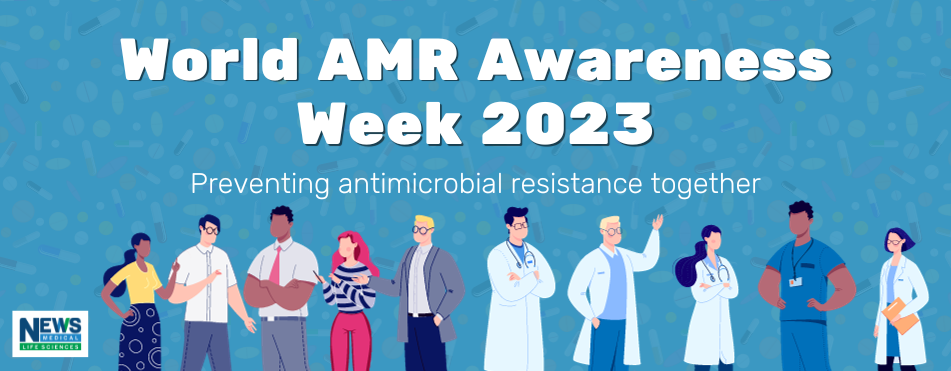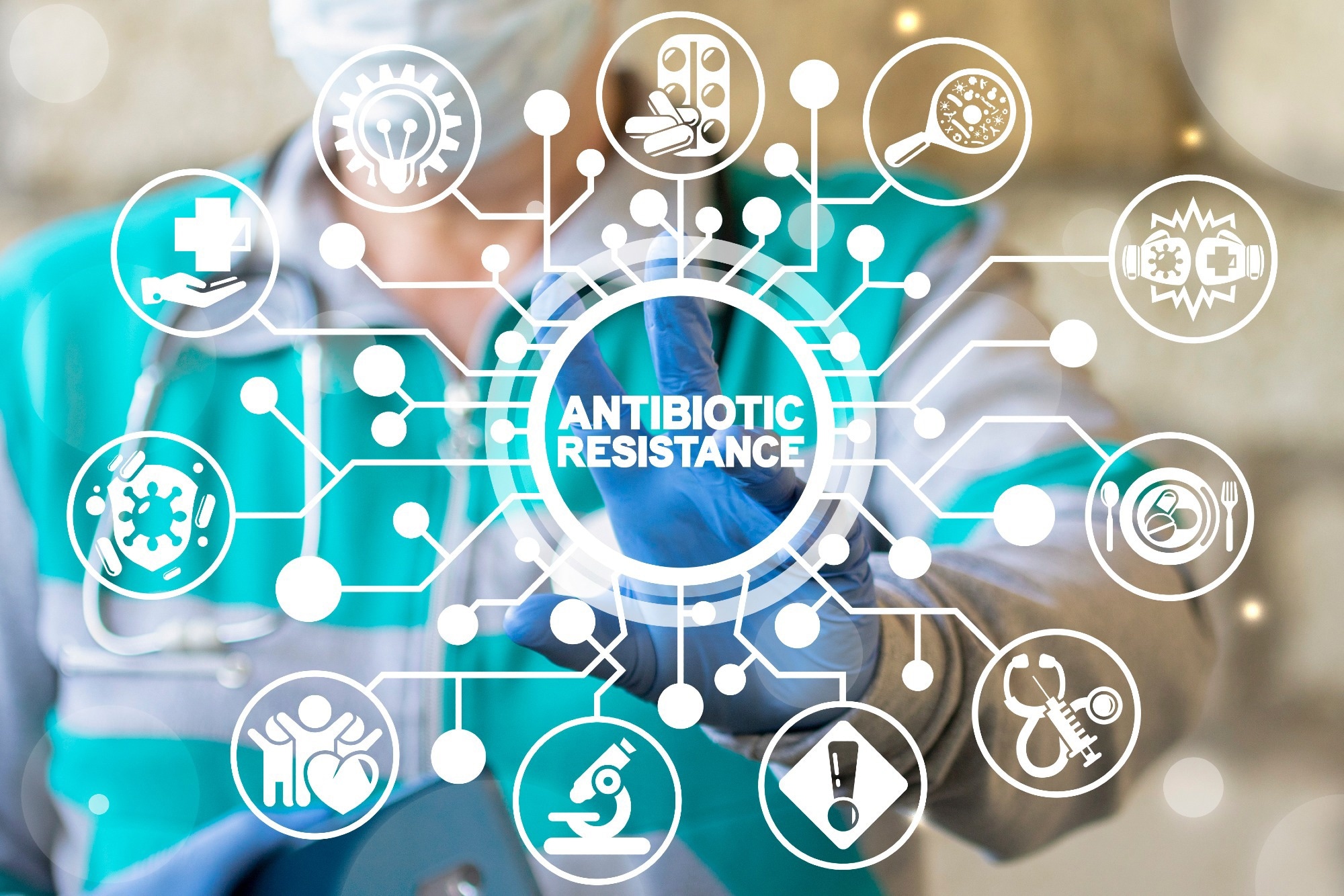
Introduction to antimicrobial resistance
Understanding AMR
Antimicrobial resistance (AMR) arises when microorganisms, particularly bacteria, evolve mechanisms against antimicrobial agents to survive. These mechanisms may arise through either spontaneous mutations or the transfer of genetic material from other microorganisms that allow for their continued spread.
AMR remains a serious threat to global public health, with the burden of drug-resistant infections rising each year. In 2019 alone, about five million deaths were attributed to AMR, of which 1.27 million deaths were specifically due to drug-resistance bacterial infections. By 2050, researchers estimate that AMR could be responsible for over ten million deaths each year.
Despite the numerous benefits associated with antimicrobial use in treating previously lethal infections, current estimates indicate that up to 30% of all antibiotics prescribed in hospitals are unnecessary or suboptimal. The overuse and/or misuse of antibiotics is particularly widespread in low- or middle-income countries (LMIC), as many patients will make a diagnosis, “self-prescribe,” and purchase antibiotics for themselves without a prescription. In fact, one recent systematic review found that up to 50% of patients of any age seeking care for any reason throughout LMICs were prescribed at least one antibiotic.
In Vietnam alone, up to 91% of antibiotics are believed to be consumed through self-medication. Antibiotic overuse in LMICs is also largely due to overprescribing by general practitioners, as well as prescriptions provided by inappropriate healthcare professionals, such as community pharmacists. Other factors that contribute to AMR include inadequate duration of therapy, inappropriate indication for use, non-adherence to antibiotic regiments, and a general lack of awareness on the appropriate use of antibiotics.
The lack of new antimicrobial agents, which is largely due to the diverted attention by the pharmaceutical industry to develop vaccines against infectious diseases rather than antimicrobials, has further exacerbated this problem.
 Image Credit: Panchenko Vladimir/Shutterstock.com
Image Credit: Panchenko Vladimir/Shutterstock.com
The impact of overuse and misuse
Consequences of inappropriate use
The six leading pathogens that contribute to AMR burden throughout the world include Escherichia coli, Staphylococcus Aureus, Pseudomonas aeruginosa, Klebsiella pneumoniae, Streptococcus pneumoniae, and Acinetobacter baumannii. The resistance of the microorganisms and others to fluoroquinolones and β-lactam antibiotics such as carpenems, cephalosporins, and penicillins, both of which are often the first line of therapy for treating severe infections, account for up to 70% of AMR-related deaths in 2019.
In addition to the hospitalizations and deaths directly attributed to AMR, the overuse of these antimicrobials is also associated with various adverse effects, with up to 20% of hospitalized patients experiencing some type of antibiotic-related side effect. In severe cases, renal and bone marrow toxicity has been reported following antibiotic treatment.
The widespread use of antibiotics within the agricultural industry also significantly contributes to AMR, as up to 67% of antimicrobials throughout the world will be consumed by livestock by 2030. These antibiotics can be used for various purposes, from treating animals with clinically diagnosed infections to prophylactic measures to reduce the risk of infecting healthy animals. Antibiotics are also used at subtherapeutic levels for promoting growth in livestock.
These practices within the agricultural industry have contributed to developing antibiotic-resistant organisms such as E. coli, Campylobacter, Enterococci, and Salmonella. In fact, each year about 600 million people are affected by a food-borne illness, with up to 420,000 deaths reported each year.
What is antimicrobial stewardship?
Antimicrobial stewardship defined
To mitigate the global issue of AMR and reduce the continued spread of resistant microorganisms, various policies have been implemented, including antibiotic stewardship. Antibiotic stewardship refers to a concerted effort to improve how clinicians prescribe antibiotics, including the optimal selection, dosing, and duration of antimicrobial treatment.
These efforts are aimed at preserving the health of patients by ultimately ensuring the effective treatment of infections while also reducing the risk of unnecessary antibiotic use.
There are significant costs associated with AMR, with current AMR infection treatment costs ranging from $18,000-29,000 USD for each patient. Thus, an additional aspect of antimicrobial stewardship is improving the cost-efficacy of healthcare.
To date, antimicrobial stewardship programs have been implemented in various countries worldwide, with many of these programs specifically tailored to the specific needs of health departments, hospitals, outpatient clinics, and nursing homes. Many of these programs have already led to promising benefits within the healthcare industry, including improved dosing in renally-impaired patients, reduced mortality rates, reduced hospital costs, and better infection cure rates.
For example, according to the United States Centers for Disease Control and Prevention (CDC) 2019 Antibiotic Resistance Threat Report, AMR-related deaths declined by 18% as compared to the levels reported in 2013, with a 28% reduction in hospitalized patient deaths. More specifically, a 41% decline in vancomycin-resistant Enterococci (VRE), 33% reduction in carbapenem-resistant Acinetobacter, 29% reduction in multi-drug resistant Pseudomonas aeruginosa, 25% less Candida, and 21% fewer methicillin-resistant Staphylococcus Aureus (MRSA) infections were reported in 2019.
Why is Antimicrobial Stewardship Important?
Antimicrobial stewardship in healthcare settings
Stewardship in healthcare
The Agency for Healthcare Research and Quality has established the ‘Four Moments of Antibiotic Decision Making’ to support antimicrobial stewardship within clinical settings. These guidelines ask clinicians to consider whether the patient has an infection requiring antibiotics.
To ensure that an antibiotic prescription is absolutely warranted in this situation, the prescriber is then advised to consider what cultures should be obtained carefully and, depending on these results, what the optimal treatment for the infection would be.
In the event that an antibiotic treatment is warranted, clinicians should carefully consider the antimicrobial therapy, duration, and dosing. Making these decisions with a coordinated group that includes clinicians, nursing staff, pharmacists, microbiologists, and patient safety teams will ensure the success of antimicrobial stewardship programs.
References
- Aguilar, G. R., Swetschinski, L. R., Weaver, N. D., et al. (2023). The burden of antimicrobial resistance in the Americas in 2019: a cross-country systematic analysis. The Lancet Regional Health – Americas 25; 100561. doi:10.1016/j.lana.2023.100561.
- Nahrgang, S., Nolte, E., & Rechel, B. Antimicrobial resistance. In: The role of public health organizations in addressing public health problems in Europe: The case of obesity, alcohol and antimicrobial resistance [Internet]. Copenhagen (Denmark): European Observatory on Health Systems and Policies; 2018. (Health Policy Series, No. 51.) Available from: https://www.ncbi.nlm.nih.gov/books/NBK536193/.
- Bui, D. S., & Nguyen, T. (2023). A real challenge to tackle the overuse of antibiotics in LMIC: a case from Vietname. The Lancet Regional Health Western Pacific. doi:10.1016/j.lanwpc.2022.100650.
- Shrestha, J., Zahra, F., Cannady, P. (2023). Antimicrobial Stewardship. [Updated 2023 Jun 20]. In: StatPearls [Internet]. Treasure Island (FL): StatPearls Publishing. Available from: https://www.ncbi.nlm.nih.gov/books/NBK572068/
Further reading:
Last Updated: Nov 3, 2023